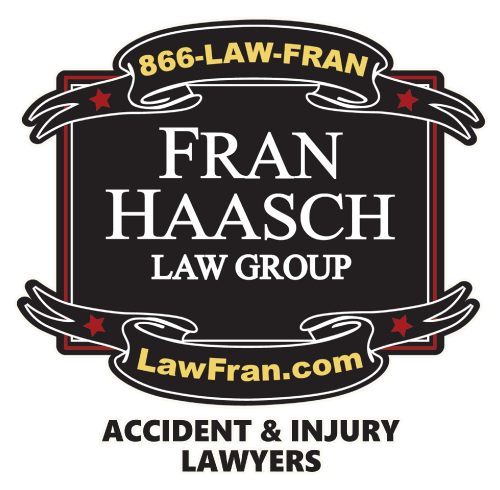Car Accident Nerve Damage Claims
Experiencing a car accident can be a traumatic and life-altering event. Among the array of potential injuries, nerve damage can be particularly devastating, leading to chronic pain, impaired mobility, and a decreased quality of life. For those living with the aftermath of nerve damage post-accident, we understand how challenging and overwhelming these circumstances can be.
If your nerve damage resulted from another party’s negligence, legal avenues are available for you. Compensation through car accident claims can help cover the cost of medical expenses and lost wages and may also account for emotional distress and reduced quality of life. Everyone deserves justice, especially when their lives have been upturned through no fault of their own.
Fran Haasch Law Group Accident & Injury Lawyers Fights For You
Fran Haasch Law Group Accident & Injury Lawyers is dedicated to helping victims of car accidents with nerve damage obtain the justice and compensation they deserve. With over a decade of experience, our team of skilled attorneys has successfully represented countless clients in similar situations. Contact us today for a free consultation to discuss your potential nerve damage car accident claim and how we can help you.
The Nerves in the Human Body
Our bodies contain a complex network of nerves, each with its own specific function, enabling us to perform a multitude of physical activities and interpret the world around us. There are three primary types of nerves in the human body: sensory nerves, motor nerves, and autonomic nerves.
Sensory Nerves
Sensory nerves, also known as afferent nerves, transmit sensory information from the skin and muscles back to the spinal cord and brain. This information allows us to feel different sensations, such as heat, cold, and pain.
Motor Nerves
Motor nerves, or efferent nerves, carry signals from the brain and spinal cord to the muscles. These nerves control all our movements, from simple tasks like walking and holding objects to complex actions like playing a musical instrument or writing.
Autonomic Nerves
Autonomic nerves control involuntary or partially voluntary activities in our bodies, such as heart rate, blood pressure, digestion, and temperature regulation. They form part of the autonomic nervous system, which is further divided into the sympathetic and parasympathetic nervous systems. Any damage to these nerves can disrupt these functions and result in various health complications.
What is Nerve Damage?
Nerve damage, medically known as neuropathy, is a condition that occurs when the nerves in our body are injured or damaged.
This can disrupt the normal functioning of the nerves, leading to numerous symptoms such as:
- Numbness or tingling sensation
- Muscle weakness or paralysis
- Pain or burning sensation
- Sensitivity to touch
- Loss of coordination
- Muscle atrophy
- Changes in skin, hair, or nail growth
- Digestive issues
- Difficulty breathing or swallowing
In severe cases, nerve damage can also cause paralysis and even organ dysfunction.
Nerve damage can be the result of a variety of causes, including traumatic injuries, infections, inherited causes, and systemic illnesses like diabetes. In the context of a car accident, it often occurs due to the forceful impact and trauma inflicted on the body, leading to crushed, stretched, or severed nerves. This type of injury can have far-reaching consequences, affecting a person’s ability to move, feel, and live a normal life. It’s important to consult a medical professional if you suspect nerve damage, as immediate diagnosis and treatment can prevent further complications.
How Do Car Accidents Cause Nerve Damage?
Car accidents can cause nerve damage through a variety of mechanisms. Here are the most common ways:
Whiplash: This occurs when the force of the collision causes the head to suddenly jerk back and forth, which can stretch or tear the nerves in the neck.
Blunt Force Trauma: A direct blow to a part of the body can damage the nerves in that area. For example, if a person’s leg strikes the dashboard in a collision, the impact can harm the nerves in the leg.
Penetrating Injuries: Debris from the accident can penetrate the skin and damage the nerves. This could be shards of glass, pieces of metal, or even broken bone fragments.
Crushing Injuries: During a severe accident, a part of the body might be trapped and crushed, leading to significant nerve damage.
Spinal Cord Injuries: Damage to the spinal cord can disrupt communication between the brain and the nerves, leading to various forms of nerve damage.
Seat Belt Injuries: While seat belts save lives, they can also cause injuries in a high-impact collision. The force exerted by the seat belt can damage nerves, particularly in the shoulder and chest area.
How Can You Diagnose a Nerve Injury?
Diagnosing a nerve injury typically involves a thorough physical examination and various tests to identify the type and extent of the nerve damage. In the case of car accidents, three types of nerve injuries are commonly observed:
Neurapraxia: This is characterized by the compression and interruption of the blood supply to nerves, often resulting from a pinched nerve or whiplash. The disruption in nerve function is typically temporary, with a full recovery usually taking place within about 6 to 8 weeks.
Axonotmesis: This involves a more severe injury where nerves are crushed, typically resulting from an impact that is more violent than one causing neurapraxia. The damage could be permanent, causing partial or full paralysis, although a full recovery might still be possible in some cases.
Neurotmesis: This is the most serious nerve condition, characterized by severe crushing or laceration of the nerves. In such cases, a patient may regain partial feeling and mobility of the affected area, but full recovery is nearly always impossible.
How Can a Car Accident Lawyer Help in Cases of Nerve Damage?
If you have suffered nerve damage as a result of a car accident, it’s crucial to seek legal help. An experienced car accident lawyer can assist you in several ways, including:
- Gathering evidence to prove the extent and severity of your injuries.
- Negotiating with insurance companies on your behalf for a fair settlement.
- Representing you in court, if necessary, to fight for your rights and seek the compensation you deserve.
Nerve damage caused by a car accident can have long-lasting effects on a person’s physical, emotional, and financial well-being. Seeking legal assistance can help ease some of the burdens associated with such an injury and ensure that you receive the support and compensation you need to move forward.
What is the Treatment For Nerve Damage Injuries?
Treatment for nerve damage injuries is highly specific to the nature and extent of the damage. It’s aimed at relieving symptoms, managing the underlying cause, and restoring nerve function. Here are some commonly employed treatment strategies:
- Medications: Over-the-counter and prescription medications can be used to manage pain and other symptoms of nerve damage. These might include nonsteroidal anti-inflammatory drugs (NSAIDs), pain relievers, and medications specifically for nerve pain, like Gabapentin or Pregabalin.
- Physical Therapy: A physical therapist can devise exercises to maintain muscle strength, improve mobility, and reduce pain. This strategy is especially beneficial when nerve damage has resulted in muscle weakness or loss of function.
- Surgical Intervention: In severe cases of nerve damage, surgical procedures may be required. This could involve nerve repair, nerve grafting, or nerve transfer, depending on the extent of the damage.
- Lifestyle Changes: Regular exercise, a healthy diet, and quitting smoking can all promote nerve health and recovery. This is particularly relevant for individuals with nerve damage due to systemic illnesses like diabetes.
- Alternative Therapies: Techniques like acupuncture, biofeedback, or massage can also provide relief from some symptoms of nerve damage and enhance overall well-being.
Remember, treatment should always be under the guidance of a healthcare professional, who can best assess the condition and recommend a suitable treatment approach.
Can You Claim Compensation For Nerve Damage In a Car Accident?
Yes, you can claim compensation for nerve damage in a car accident. If you’ve suffered nerve damage as a result of a car accident that wasn’t your fault, you may be entitled to compensation for your injuries. This can include:
- Medical Expenses: Compensation can cover the cost of hospital stays, surgical procedures, medications, physical therapy, and any other medical costs you’ve incurred as a result of your nerve damage.
- Loss of Earnings: If your nerve damage has prevented you from working, either temporarily or permanently, you may be entitled to compensation for your lost income.
- Therapy and Rehabilitation Costs: If your nerve damage requires ongoing therapy and rehabilitation, these costs can also be covered in a compensation claim.
- Pain and Suffering: This considers the physical pain and emotional distress caused by your nerve damage. Compensation can be claimed to acknowledge the pain and suffering you’ve had to endure.
Remember, every case is unique, so the actual compensation you’re entitled to may vary. An experienced car accident lawyer can provide guidance tailored to your specific situation.
Contact Us Today For a Free Consultation
At Fran Haasch Law Group Accident & Injury Lawyers, we have a dedicated team of experienced attorneys who specialize in handling car accident cases involving nerve damage. We understand the significant impact such injuries can have on your life, and we are committed to helping you navigate through this challenging time. From gathering evidence to negotiating with insurance companies and representing you in court if necessary, we’ll be by your side every step of the way.
Don’t face this legal battle alone – reach out to us today for a free consultation. We can discuss the circumstances surrounding your accident, explain the legal options available to you, and determine how best to proceed with your case. By entrusting us with your nerve damage claim, you can focus on your recovery while we fight for the maximum compensation you deserve.















